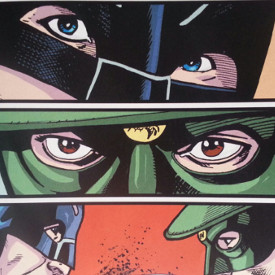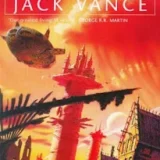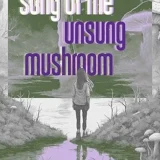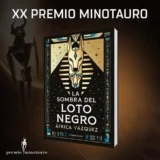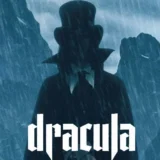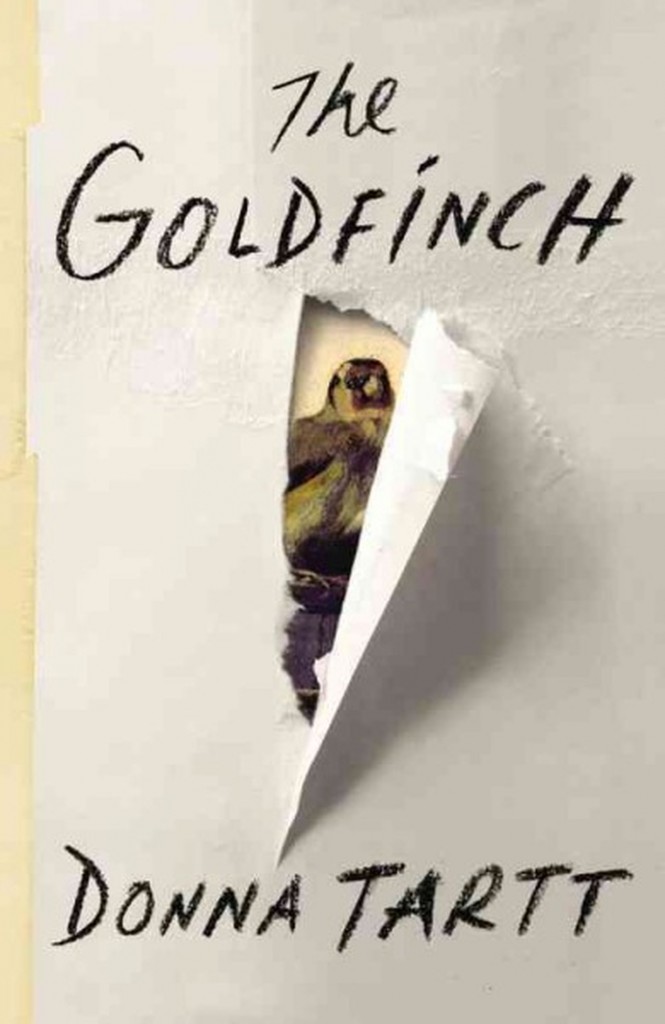
This is not a review of Donna Tartt’s third novel, The Goldfinch. A massive best-seller and Pulitzer Prize winner, there are already plenty of reviews of the novel available to satisfy anyone’s curiosity. Let’s just say it is a fabulous novel which loses its way a little in the final third before pulling everything back together for a stunning ending. It is written with a poet’s eye and a perceptive touch for nuances of character, and will a few reservations I loved it. No, this is not a review of The Goldfinch, but a look at the way Tartt’s novel might be read as an accidental sort of science fiction.
Clearly Donna Tartt had no intention of writing a science fiction novel. The Goldfinch is not, for instance, a novel of the fantastic such as Bellefleur by Joyce Carol Oates, which is fantasy but was marketed as mainstream ‘literature’ – which is only another genre label, the one indicating mimetic fiction. There is nothing in the plot of The Goldfinch which is science-fictional. In fact it is the absence of anything science-fictional which is so striking, given that almost half the book is set in the near future.
The key event around which The Goldfinch is anchored, we are told by the narrator, “…happened in New York, April 10th, fourteen years ago”. No specific year is mentioned, but Osama Bin Laden is still alive and, if not on that April day, then by a few weeks later, people have iPhones.
If the novel is meant to be set in our world, and there is absolutely no reason to assume it is not, despite featuring a major event which certainly did not happen in our reality, then the earliest
year in which that April take might be is 2007 (the iPhone was introduced on 29 June 2007) while the last April in which Osama Bin Laden was alive was 2011. So the event around which the novel hangs must take place in on 10 April 2007, 2008, 2009, 2010 or 2011. Which means that almost latter half of The Goldfinch must be set in the near future. Not everything in that future part of the novel happens fourteen years later. The events take place over a two or three years. But however it is calculated, the later part of the novel must unfold roughly between 2019-2021 or possibly as late as 2023-25.
That’s not far in the future, but given rapid changes in technology, and acknowledging that a major aspect of the novel involves centuries old art and antique furniture, the lack of any aspect of even slightly speculative technology is an oddity in itself which needs to be considered and accounted for. This is a very carefully considered novel. I would assume Tartt didn’t want to include any fictional near future technologies for fear they would prove distracting, and out of concern for (inevitably) getting speculative technologies wrong and making the novel very dated by the actual early 2020s. It does though strike a very false note that young adults in the 2020s are still using iPods, burning CD compilations and don’t seem to have discovered downloading, file sharing or streaming.
It is almost as if Tartt forgot the latter half of the novel is set in the near future. And perhaps she did. The Goldfinch was originally set to be published in 2008 and didn’t finally reach the shelves until 2013. Perhaps through multiple revisions the time scheme became a little muddled along the way. Early drafts, prior to 2007, certainly wouldn’t have featured iPhones, which are ubiquitous in the novel, and no one will be using iPods in the 2020s.
Not that any of this is of great importance, but is rather an interesting curiosity, likely a side-effect of how long the novel took to write – Tartt’s previous novel, The Little Friend, came out in 2002. The fact is, setting part of The Goldfinch in the future is nothing more than a device to allow the characters to age. But perhaps a better solution would have been to locate that day in New York back in 1999. Then the fourteen years would span to 2013, when The Goldfinch was published, and there would be no technology problems at all. Characters could still have laptops and cell phones and stand-alone MP3 players, and burning CDs would seem more plausible behaviour.
As it is The Goldfinch is an odd sort of accidental science fiction novel without any science fictional content – though there are some superbly realized passages which evoke a dark, fantastical, existential dread akin to the very best dark fantasy or horror. Regardless of any of this, The Goldfinch is an exceptionally good novel which simply deserves to be widely read.
…is a freelance editor, writing consultant and story structure expert. To find out more, including hiring me to work on your writing project, read my profile or visit my website, To The Last Word.



